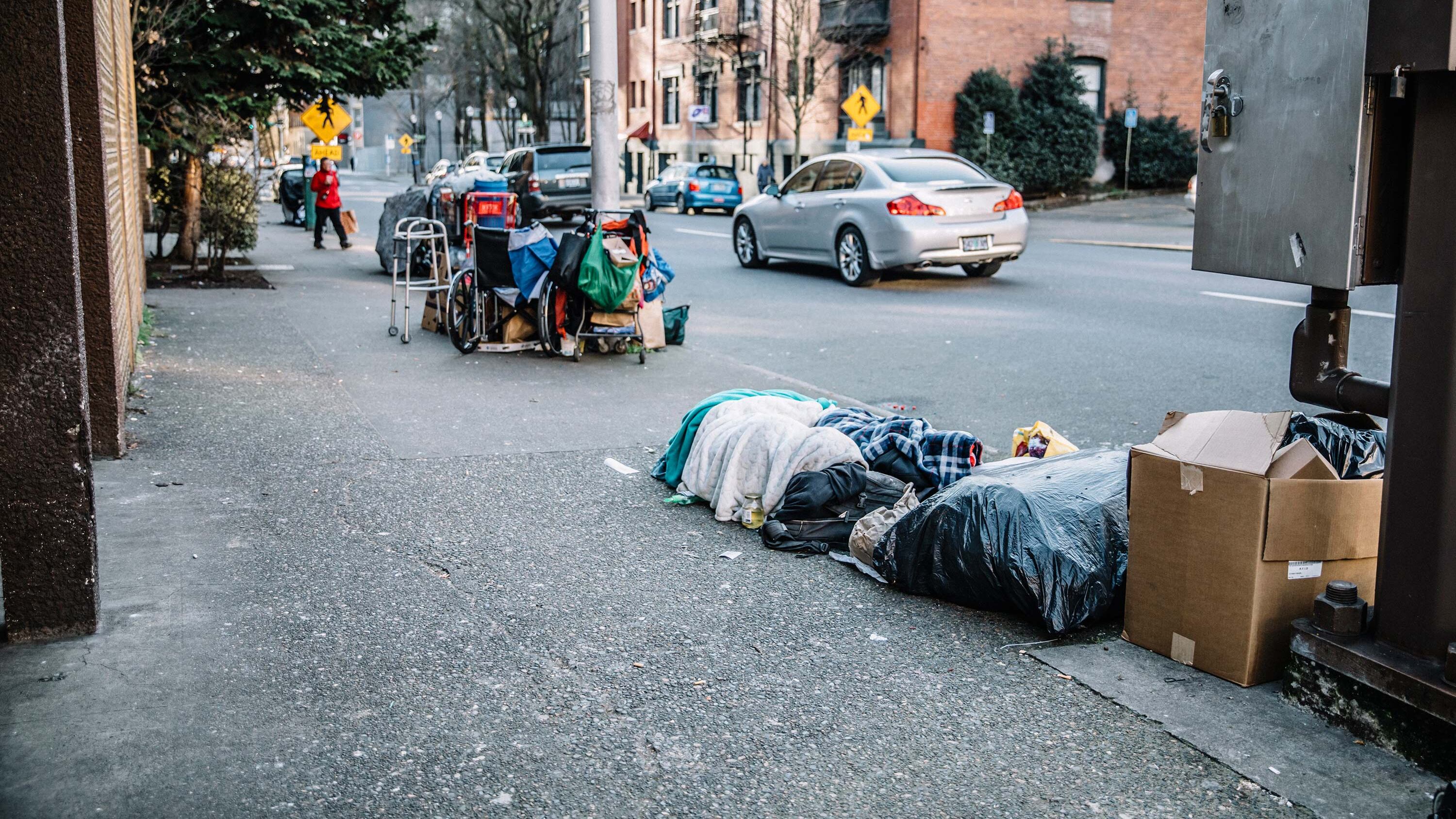Portland Mayor Ted Wheeler announced his budget proposals for this year's projected $577.3 million general fund budget, highlighting a few key changes in the way the city is responding to housing and homelessness, among other budget requests.
The city projects it will have $18.4 million in new one-time money and $2.4 million in new ongoing funding, which the mayor and City Council will focus on.
Here are some key things to note in a budget where most of the budget is devoted to ongoing programs that the city will continue.
1. Unlike last year, when the mayor raised the rate of the business license tax, he did not propose a new source of revenue, even though he plans for continued spending on homelessness. He said the focus this year should be on Salem's increase in statewide taxes.
"There is a $2 billion tax hike that is on the table in the legislature," says Wheeler. "I would say that should be everybody's top priority at this particular moment, because that funds the schools. Secondarily, I just raised business taxes last year."
(As a side note, Wheeler said the city is lobbying against a provision in the Legislature's education bill that would make it impossible for localities to pass a tax on groceries and a business excise tax, and which could shrink the ambitions for a 2020 Metro transportation measure, among other plans.)
2. There is not likely to be a big fight about the budget. Last year there was the potential for significant disagreements over budget priorities, notably over police staffing. This year, other commissioners's offices indicated they don't see deal-breakers. There will be bargaining over smaller allocations, but there's no indication there will be a fight over big-ticket items.
Commissioner Chloe Eudaly's chief of staff, Marshall Runkel, said: "After not digging in in detail, it looks like the budget is close."
Commissioner Nick Fish's chief of staff, Sonia Schmanski, said: "I feel very appreciative that they found so much money for parks this year."
3. The Parks Department won't be closing any community centers this coming fiscal year, but the budget proposal includes cutting 55 workers, and big changes are expected in the following year's budget to address ongoing budget shortfalls.
The budget includes the funding that the parks bureau requested for a year of transition. But the Columbia Pool is still likely to close next year. And the Laurelhurst and Hillside community centers will likely have outside programs, starting in a year. Similarly, the Multnomah Arts Center and the Community Music Center need overhauls before they will be financially secure.
4. In funding housing this year, the Joint Office of Homeless Services will get $32 million, roughly the same amount money as last year. But the city budget signals possible new ways the city is looking to address homelessness.
— For the first time, there's $500,000 in the budget for addiction-treatment services to pair with housing. In the past, the mayor has argued that services are a county role to fulfill, so this proposal represents a significant shift. "Traditionally that is the purview of Multnomah County," he said. "I think it is unrealistic to assume that Multnomah County can do all of that alone with the resources they have. Supportive housing is a very high priority for this administration." It's not yet clear how the Portland Housing Bureau will secure those services—whether they'll work with the county or find their own contractor.
— At Commissioner Jo Ann Hardesty's request, the mayor's budget includes $182,727 for a Mental Health and Nurse Triage Program, for a consultant to develop a program to direct lower-intensity 911 calls to a nurse, who could book appointments at a clinic instead of sending an ambulance. It's expected to take two years of work before such a program would begin.
— Also at the urging of Hardesty and the homeless newspaper Street Roots, the mayor has included $500,000 in his budget for "street response"—ways to interact with people sleeping outside without law-enforcement involvement. Hardesty's and the mayor's offices have already embarked on the work, but the allocation will help coordinate the approach to the issue.
— There is also $877,870 in the budget for a portable toilets, with funding for staffing at those toilets.
5. Other notable items that stand out in the proposal:
—Albina Vision, the effort to rebuild Lower Albina and the Rose Quarter, could receive $75,000.
— A feasibility study of a water taxi service on the Willamette River, called the Frog Ferry, could receive $200,000.
— The mayor is moving forward with a 311 call line with a $662,103 proposal and with further requests expected during the year
— And there's $9.4 million (the largest onetime expenditure in the proposed budget) for updating the "Integrated Tax System" technology to collect city taxes.
